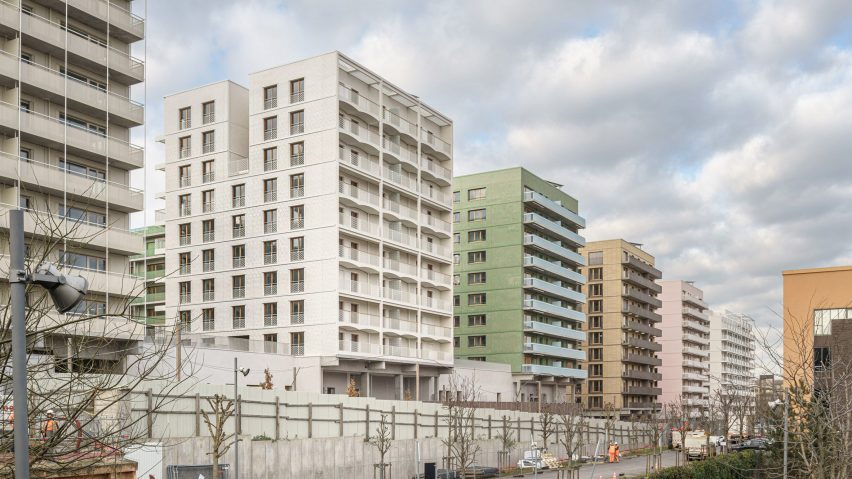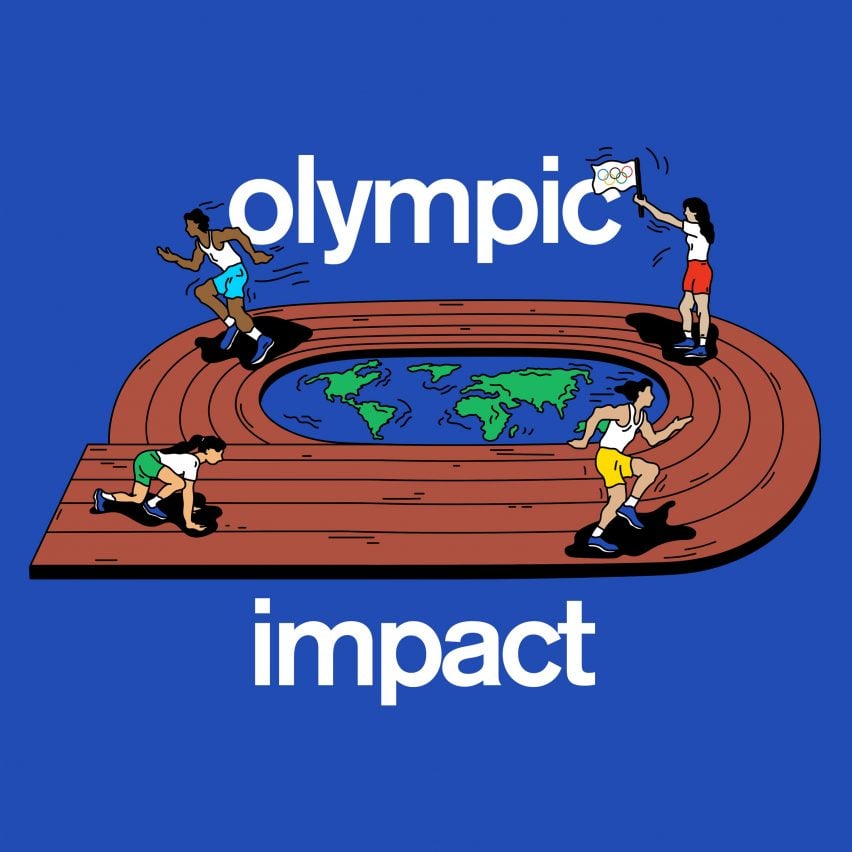
"The Paris Olympic Village air-conditioning debacle is a perfect illustration of the barriers to climate action"
The row over air conditioning in the athletes' village at the Paris 2024 Olympics demonstrates the scale of the challenge we face in gaining acceptance for sustainable building technologies, writes Smith Mordak as part of our Olympic Impact series.
The Paris Olympic Village air-conditioning (AC) debacle is a perfect illustration of the barriers to climate action.
If you've not heard, essentially, the athletes' village was designed and built to be cooled via a geothermal cooling system that pumps water from 50-70m below the surface to keep the athletes cool, so long as they follow a few simple rules such as keeping window blinds shut during the day. The system is similar to the district cooling network that's successfully been keeping buildings and landmarks across Paris cool even despite ferocious heatwaves.
This story is one that's playing out every day
Unfortunately, faith in this technology wavered, and many teams, including those from Britain, Germany, Italy, Japan, Canada and USA, elected to buy portable air-conditioning units to supplement the geothermal cooling.
This was met with dismay as it tipped the playing field in favour of the wealthier nations' competitors, as those that had the budgets to cover the additional AC units enjoyed high-energy active cooling, and those that didn't suffered hotter temperatures.
The Olympics is an extraordinary event, but this story is one that's playing out every day. It typifies climate inaction: a low-emissions solution is proposed (or even implemented); fear that it might cause inconvenience or discomfort takes root; those with the means to opt for a high-emissions business-as-usual solution choose not to risk it; greenhouse gases are emitted and inequality prevails. How do we break this cycle?
To answer this question, I think we need to solve two underlying problems. How do we engender trust in low- and zero- emissions technologies? And how do we create the cultural conditions that enable us to act for each other, in solidarity?
The Paris athletes' village cooling system has all the hallmarks of so many low-carbon technologies struggling to make it big. It's proven at scale, it's marketed as state of the art but actually enjoys a long and proud history (the richest citizens of the Roman Empire were using piped cold water to cool their buildings 2,000 years ago), and it requires modest behaviour change to make it work. We have so many of the solutions we need!
Yet whether we're talking about domestic heat pumps or timber structures or nature-based flood management solutions, the same sorts of evidence is stacked in favour, and yet faith wavers. "Technology will save us" they cry, and yet when the technology lies in plain sight, it's questioned and derided. Meanwhile, everyone wants the latest smartphone, why?
Anything associated with sustainability comes with a doom-and-gloom, hair-shirt association
Here's my theory: the latest smartphone enjoys two things that these eminently sensible sustainable buildings solutions don't: brand trust, and not being too-closely associated with sustainability.
Building trust in a brand is a big job that takes an enormous amount of time and effort, usually over a long period of time. The Paris Olympic Village's geothermal cooling system doesn't have brand trust. One survey showed that more than 70 per cent of people think the organisers should take additional measures to protect athletes.
Anything associated with sustainability has an even bigger hill to climb as it comes with a doom-and-gloom, hair-shirt association. For decades now we've heard the bad news: climate change is upon us and we're soon going to have to forgo our comfortable lifestyle and go back to the dark ages.
When a solution is billed as sustainable, it gets tainted with this crappy colour, and no matter how much the marketeers try and convince us, deep down we suspect that anything eco-friendly is a compromise, and we don't trust it.
Trust is a big problem across the board. For example, trust in US and UK institutions is low and decreasing. If we're going to tackle climate change, we have to learn to rebuild trust with each other.
As anyone who's ever tried to repair a relationship knows, this is very difficult stuff. But as anyone who's ever actually built deep and enduring trust, it's well, well worth it.
A key barrier to overcome is accepting that this is work we need to do, even though we shouldn't have to
The second challenge, of creating the cultural conditions that enable us to act not out of defensive self-interest, but in solidarity for each other, is also no picnic.
For clues on this, I'm increasingly looking to ways of healing from intergenerational trauma – especially Steffi Bednarek, who's brilliant on this. The transmission of trauma from one generation to the next shows up in all sorts of ways, and I'd argue that climate change is one of them. Generation after generation have fought for their own security, and in the face of fear and scarcity, have made short-term decisions that entrench unsustainable behaviours and systems, and drive a wedge between humans and the rest of nature.
Then each successive generation has inherited that fear and scarcity, and the perceived scarcity that comes from being unable to share resources equitably: so the cycle continues.
But there is hope! As the new parent – who feels themself boiling over with rage as their kid screams all night long, but decides that instead of taking out that rage on the kid or their partner or others, they'll work through that rage and not repeat the pattern of their parent and their parent before them – breaks the cycle, so our generation (by which I mean everyone living now) can choose not to perpetuate the cycle of climate breakdown.
In addressing intergenerational trauma, a key barrier to overcome is accepting that this is work we need to do, even though we shouldn't have to. It's not fair, but it's landed in our laps and we can choose to deal with it or pass it on.
I think a similar acceptance is needed in the face of climate breakdown. Those of us who enjoy the privileges of a life made comfortable and convenient by the spoils of the industrial revolution are the lucky ones: because we have the privilege of making this choice.
If we reach the goal of a fair civilisation, then we can collectively decide where to prioritise resources
We could choose to just pass it on, to buy our air conditioners and leave those with fewer resources in this generation and the next to lump it. That's even less fair. None of this is fair, but that's even worse.
Now maybe you think I'm perpetuating the idea that tackling climate change is a compromise that could ideally be avoided. Perhaps in some cases this is true, but overall, if we reach the goal of a fair civilisation that we can genuinely sustain indefinitely on this planet, and we can trust each other enough, then we can collectively decide where to prioritise resources.
So then, a society in balance with natural cycles, and not systemically holding open the wound of inequity, may well decide that expending more (renewable, of course) energy on cooling for a month every four years to support ALL the Olympic athletes is a fair and sensible decision.
Smith Mordak is an architect, writer and curator and the chief executive of the UK Green Building Council.
The photo is by Stefan Tuchila.

Olympic Impact
This article is part of Dezeen's Olympic Impact series examining the sustainability measures taken by the Paris 2024 Olympic and Paralympic Games and exploring whether major sporting events compatible with the climate challenge are possible.